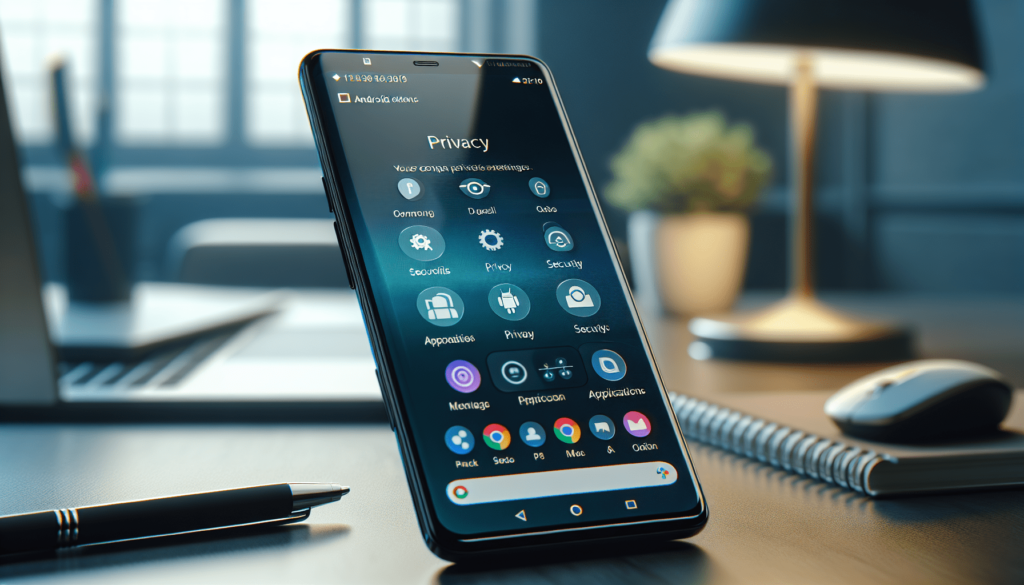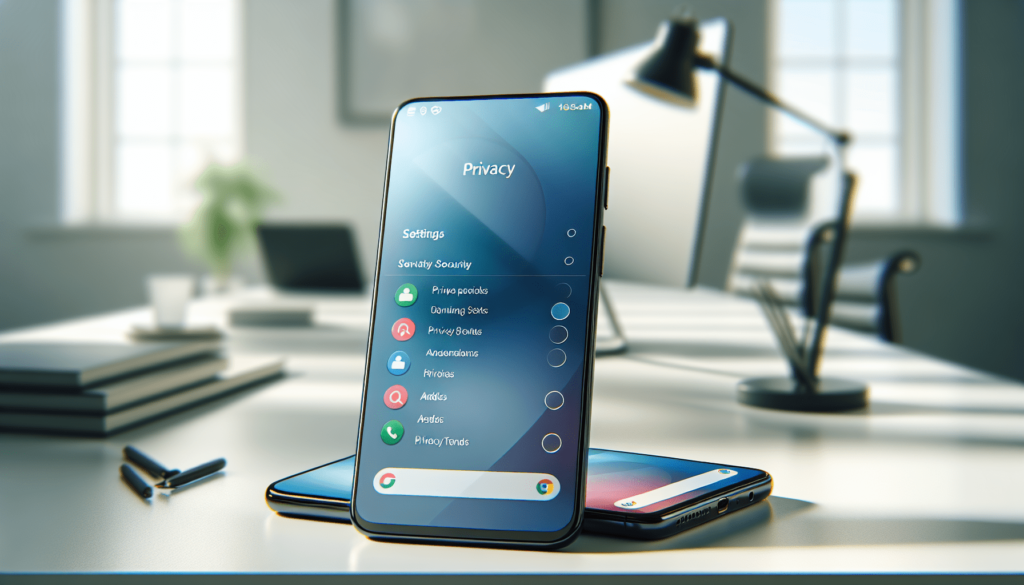Ever feel like your phone knows just a little too much about you? If you’ve ever wondered how Android apps are handling your privacy, you’re in the right place. Let’s talk privacy trends in Android apps, and what you can do to protect your personal information.
Understanding Privacy in Android Apps
Data Collection Practices
You probably know that apps collect data, but did you know the extent of it? From your location to your browsing history, apps may gather a multitude of personal details. It’s all about serving you better, they say. But honestly, it often feels like having an overenthusiastic friend who keeps track of every single piece of gossip you ever shared.
Permission Requests
Remember the first time an app asked for permission? It was straightforward—yes or no. These days, though, it feels like consenting to a federal investigation. Are you familiar with those apps that want access to your microphone, photos, contacts, and basically everything except your soul? What’s up with that?
Why Privacy Matters More Than Ever
Rise of Data Breaches
Data breaches seem to be the new normal, don’t they? One day it’s a social media giant, the next day it’s a healthcare provider. It’s as if hackers have a calendar of who to target next. And when your favorite app is involved, well, that’s just—let’s say—not very reassuring.
Consumer Awareness and Demand
People are waking up to the need for privacy. If you’re reading this, you probably care about who has access to your data. More consumers are demanding transparency and control over their information. It’s like wanting to know who’s invited to the party before you decide to show up—totally reasonable, right?

Key Privacy Trends in Android Apps
End-to-End Encryption
Encryption is the unsung hero of data privacy. Simply put, it ensures only you and the person you’re communicating with can read the messages. Apps like WhatsApp are setting the trend by implementing end-to-end encryption. So only you and your BFF can giggle over those memes, not some random eavesdropper.
Minimal Data Collection
Less is more, especially when it comes to your data. Some apps are adopting a minimal data collection approach. They collect only what’s absolutely necessary. Imagine going to a restaurant, and they ask only for your food order, not your entire biography. Refreshing, right?
Decentralized Data Storage
Why store all your data in one place when you can spread it out? Decentralized storage is like hiding pieces of a treasure map in different locations. Even if one piece is found, it’s useless without the rest. Blockchain technology is leading the way here, offering a new level of data security.
Transparency Reports
Transparency is the new black. Many apps now publish transparency reports, detailing how and why your data is being used. It’s like that friend who insists on full disclosure at all times—annoying but useful.
Privacy-Focused Features
New features focusing on privacy are emerging. Think of things like customizable privacy settings, anonymous modes, and self-destructing messages. Here’s a rundown of some popular options:
| Feature | What It Does | Examples |
|---|---|---|
| Customizable Privacy Settings | Lets you choose who sees what | Facebook, Instagram |
| Anonymous Modes | Enables you to browse or use the app anonymously | DuckDuckGo Browser |
| Self-Destructing Messages | Messages that delete themselves after a set time | Snapchat, Telegram |
Privacy Concerns with Popular App Categories
Social Media
Social media apps are like those talkative neighbors who know too much about everyone’s business. They run on data. From finding friends to targeted ads, your data is their treasure. Be mindful about what you share. The less gossip available, the better.
Games
Gaming apps often lure you into their universe, but while you’re busy leveling up, they’re collecting data—lots of it. They want to know what you love to spend on, how long you play, and even who your in-game friends are. Proceed with caution, game on wisely.
Health and Fitness
Health apps can be life-changing. They track everything from your steps to your heart rate and even your sleep patterns. However, with great data comes great responsibility. These apps need stringent privacy measures because, let’s be honest, no one needs to know about those midnight snack binges.
Financial Apps
Handling money through apps is incredibly convenient. But it’s also risky if privacy isn’t prioritized. Financial apps should have robust security and privacy measures. You wouldn’t hand over your wallet to just anyone, right?

What to Look for in Privacy-Friendly Apps
Clear Privacy Policies
A good privacy policy should be clear, concise, and easy to understand. If it reads like an academic thesis, that’s a red flag.
Minimal Permissions
The fewer permissions an app asks for, the better. If a photo-editing app asks for your location, start asking questions.
Regular Updates
Apps that are frequently updated are likely more secure. Developers who care about your privacy will keep enhancing their app’s security features.
Positive User Reviews on Privacy
User reviews can be enlightening. Look for reviews that specifically mention privacy. If users are happy with the app’s privacy practices, it’s usually a good sign.
Android Security Features You Should Know
Google Play Protect
Google Play Protect scans your apps for harmful behavior. Think of it as the bouncer at the entrance of a club. It ensures only safe and verified apps get in.
Permissions Manager
Android’s Permissions Manager allows you to control what access each app has. It’s like being the gatekeeper to your own castle.
Security Updates
Android regularly rolls out security updates to patch vulnerabilities. Make sure your device stays updated to benefit from the latest protections.

Steps to Take for Enhanced Mobile Privacy
Review App Permissions
Regularly check what permissions you’ve granted to apps. Revoke any that seem unnecessary.
Use Privacy-Focused Apps
Consider switching to privacy-focused alternatives. For instance, use Signal for messaging instead of apps that collect more data.
Enable Two-Factor Authentication (2FA)
2FA adds an extra layer of security. It’s like having a lock and a chain on your front door.
Regularly Update Your Apps and OS
Ensure your apps and operating system are up-to-date. Updates often include important security patches.
Use a VPN
A Virtual Private Network (VPN) can help mask your online activity, providing another layer of privacy.
Be Wary of Public Wi-Fi
Public Wi-Fi networks are convenient but can be risky. Use them cautiously and avoid accessing sensitive information when connected.
Future of Privacy in Android Apps
Machine Learning and AI
AI can help enhance privacy by identifying unusual activity and predicting security risks. However, it’s a double-edged sword as it can also be used for more invasive data collection.
Blockchain Technology
Blockchain offers a future where data can be stored securely and immutably. It holds promise for decentralized and transparent data handling.
Legislative Changes
New laws like GDPR and CCPA are forcing companies to be more transparent about their data practices. Keep an eye out for evolving legislation that aims to protect user privacy.

Case Studies: Privacy Innovators
Signal
Signal is a leader when it comes to privacy-focused messaging. With end-to-end encryption and minimal data collection, it sets a high standard for other apps.
DuckDuckGo
DuckDuckGo offers an anonymous browsing experience. It doesn’t track your searches and prioritizes your privacy, unlike many mainstream search engines.
ProtonMail
ProtonMail is an encrypted email service that doesn’t compromise on privacy. It ensures that only you and your recipient can read your messages.
Conclusion
Navigating privacy in the world of Android apps can feel like tiptoeing through a minefield. But with emerging trends and tools, it’s increasingly possible to safeguard your information. Be mindful of the data you’re sharing, use privacy-focused apps, and always stay informed about the latest security practices. Your data is yours – it’s up to you to protect it.
Got any thoughts or other privacy tips? Feel free to share them. Your insights might just help someone keep their information safe in this ever-connected world.

